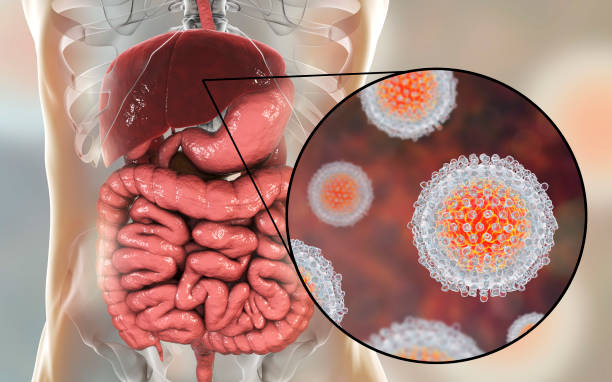Hepatitis C is a viral infection that causes liver inflammation, potentially leading to serious liver damage. The virus is transmitted through blood-to-blood contact, such as sharing needles or getting a blood transfusion with contaminated blood. In some cases, it can also be contracted through sexual contact.
Symptoms of Hepatitis C
There are several symptoms of Hepatitis C that can manifest in individuals who have been infected, but many people do not show any symptoms at all. When symptoms do occur, they may include:
Fatigue: This is a common symptom of Hepatitis C and can be very debilitating.
Muscle and joint aches: This can include pain and stiffness in the joints and muscles.
Nausea and vomiting: Some people with Hepatitis C may experience these symptoms, especially if the liver is severely damaged.
Appetite loss: This can lead to weight loss and malnutrition.
Abdominal pain: Some people with Hepatitis C may experience pain or discomfort in the abdominal area.
Jaundice: This is a yellowing of the skin and eyes that occurs when the liver is not functioning properly.
Dark urine: This is a sign of liver damage and can indicate that the liver is not properly processing waste products.
Itching: Some people with Hepatitis C may experience itching, especially if the liver is damaged.
These symptoms can range from mild to severe, and they can occur at different times in the course of the infection. Some people may have symptoms within a few weeks of being infected, while others may not have symptoms for many years.
Treatment of Hepatitis C
The good news is that there is now effective treatment for Hepatitis C. In the past, treatment options were limited and often resulted in unpleasant side effects. However, today there are several highly effective antiviral medications that can cure the virus in the majority of people who are infected.
The standard treatment for Hepatitis C is a combination of antiviral medications, which can be taken orally. The most commonly used medications include:
Sofosbuvir: This is a direct-acting antiviral that works by blocking the replication of the virus.
Ledipasvir: This is another direct-acting antiviral that works by blocking the replication of the virus.
Daclatasvir: This is a direct-acting antiviral that works by blocking the replication of the virus.
These medications are often used in combination with ribavirin, a type of antiviral medication that has been shown to improve the effectiveness of the other antiviral drugs. The length of treatment depends on the specific type of Hepatitis C infection and the patient’s overall health. Treatment can range from 8 to 24 weeks.
In addition to antiviral medications, there are other treatments that can help to manage the symptoms of Hepatitis C and prevent further liver damage. These may include:
Lifestyle changes: Making changes to your lifestyle, such as reducing alcohol consumption and maintaining a healthy diet, can help to reduce the damage that Hepatitis C can cause to your liver.
Monitoring: Regular monitoring of your liver function can help to detect any changes early and allow for prompt treatment if necessary.
Support: Joining a support group can provide you with emotional support and help you connect with others who are dealing with similar issues.
Conclusion
Hepatitis C is a serious infection that can lead to liver damage if left untreated. However, with the availability of effective antiviral medications and other treatments, it is now possible to cure the virus and prevent further damage to the liver.

 Home
Home Health
Health Diet & Nutrition
Diet & Nutrition Living Well
Living Well More
More












